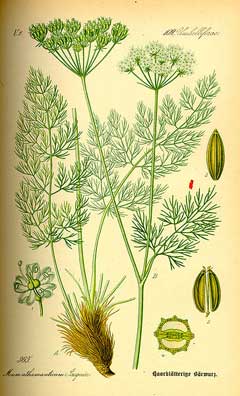Bear with me.
Spignel. Penstemon. These were just two of the recent plants that I came across in trying to complete puzzles in The Times Jumbo Cryptic Crossword Book (5th entry in this series). Plants where I knew how to get at the answer (the former an anagram of pleasing without the "a," the latter a combo of a synonym for "writes" and an anagram of "Monet"), but I didn't have enough horticultural knowledge to get the right answer, and had to resort to looking up plants that I thought should exist.
Before, I had been just finding the answer and moving on. Now, with lockdown and the increased sense of curiosity I'm trying to cultivate regarding the natural world, I have been looking them up. Penstemons do not trigger any memories for me, but spignel... something I have seen on every walk in the countryside at home, yet have never known the name of, nor cared to find it. Just part of the scenery, something there to observe but not investigate or get to know. That saddens me, but also opens up such a world of potential for observation and a deeper experience in future walks.
It also deepens my experience from my lockdown living room, too.
Quaking Aspen. Trembling Aspen. Trembling Poplar (this being the answer). All different names for the same tree, all delightfully evocative.
Asphodel. A pretty, elegant flower; also the flower of the Elysian Fields, apparently, and one whose name and story I only encountered through a crossword last week. It's also mentioned in many, many poems, and led me to this by William Carlos Williams (excellent name), Asphodel, That Greeny Flower:
Still. The poem is pretty and so is the plant. I'll leave you with that.
Spignel. Penstemon. These were just two of the recent plants that I came across in trying to complete puzzles in The Times Jumbo Cryptic Crossword Book (5th entry in this series). Plants where I knew how to get at the answer (the former an anagram of pleasing without the "a," the latter a combo of a synonym for "writes" and an anagram of "Monet"), but I didn't have enough horticultural knowledge to get the right answer, and had to resort to looking up plants that I thought should exist.
Before, I had been just finding the answer and moving on. Now, with lockdown and the increased sense of curiosity I'm trying to cultivate regarding the natural world, I have been looking them up. Penstemons do not trigger any memories for me, but spignel... something I have seen on every walk in the countryside at home, yet have never known the name of, nor cared to find it. Just part of the scenery, something there to observe but not investigate or get to know. That saddens me, but also opens up such a world of potential for observation and a deeper experience in future walks.
It also deepens my experience from my lockdown living room, too.
Quaking Aspen. Trembling Aspen. Trembling Poplar (this being the answer). All different names for the same tree, all delightfully evocative.
Asphodel. A pretty, elegant flower; also the flower of the Elysian Fields, apparently, and one whose name and story I only encountered through a crossword last week. It's also mentioned in many, many poems, and led me to this by William Carlos Williams (excellent name), Asphodel, That Greeny Flower:
Of asphodel, that greeny flower,And, heading further down the rabbit-hole, this poem, lauded for being about a love poem to a wife and not a mistress is, it turns out, from a man facing his mortality, causing him to profess his love and confess all his adultery.
like a buttercup
upon its branching stem-
save that it's green and wooden-
I come, my sweet,
to sing to you.
We lived long together
a life filled,
if you will,
with flowers. So that
I was cheered
when I came first to know
that there were flowers also
in hell.
Still. The poem is pretty and so is the plant. I'll leave you with that.








